Area Leaders
With the aim of establishing a network between different institutions and research groups, MIT Portugal Program has invited faculty members from different Portuguese Universities and different schools of MIT to help the coordination team defining and running the Program’s operations such as selection process, PhDs selection process, review panels, and activities planning in specific MPP’s strategic research areas.
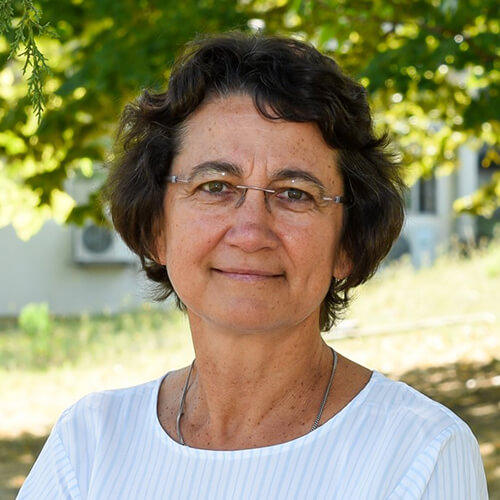
Júlia Seixas
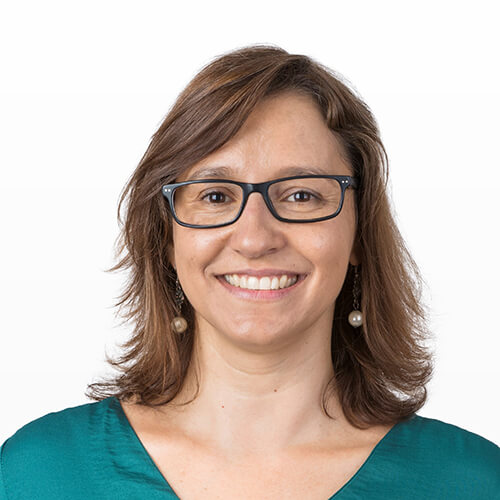
Alexandra Moutinho
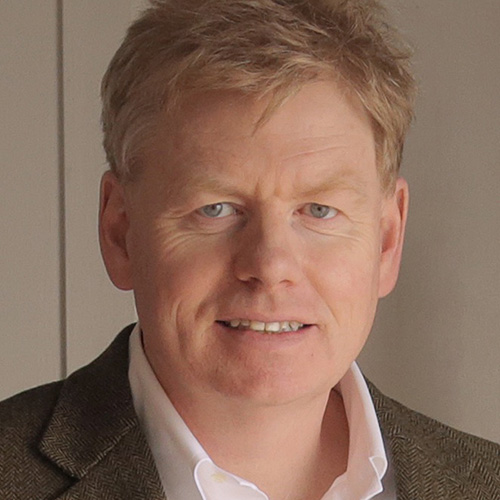
John J. Leonard
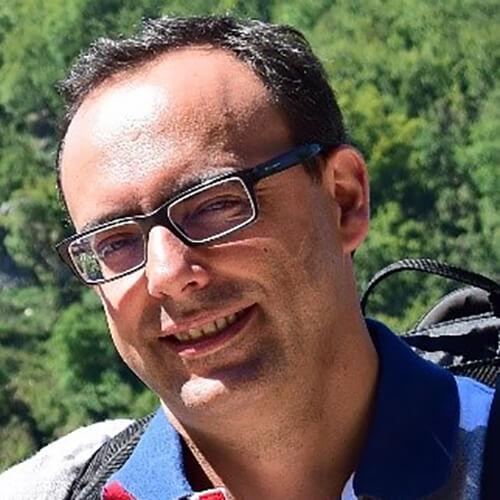
Miguel Nóbrega
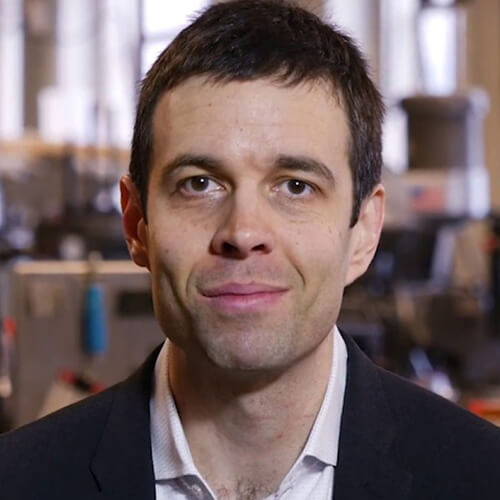
John Hart
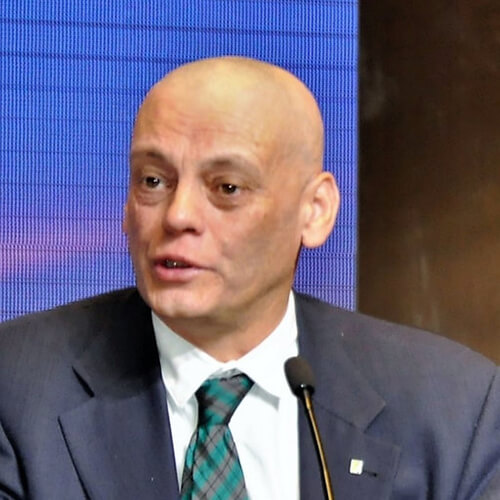
Manuel Gameiro da Silva
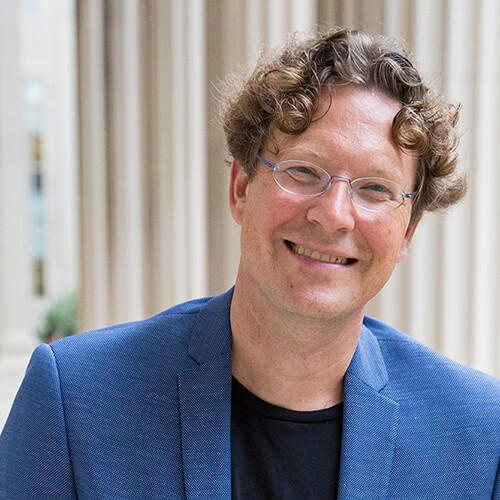
Christoph Reinhart
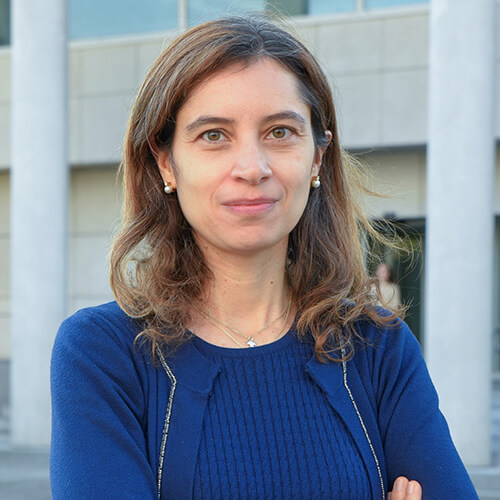
Ana Camanho
Júlia Seixas
Júlia Seixas is Professor in the areas of Remote Sensing in Environment, and Energy and Climate Change. She coordinates the Energy & Climate group at CENSE research center, dedicated to R&D towards carbon neutrality: energy systems integrated modeling, new energy technologies, new policy instruments, sustainable cities, climate vulnerability and adaptation of energy systems.
She is also Member of the Scientific Committee of the UL-UNL Joint PhD Program on Climate Change and Sustainable Development Policies. She has more than 60 publications in international scientific journals. Coordinates studies to support the national public policy on climate mitigation for more than 20 years and coordinates the Climate-KIC Hub Portugal since 2016. Júlia Seixas is President of the Department of Environmental Sciences and Engineering since March 2017.
Alexandra Moutinho
Alexandra Moutinho is Assistant Professor at Instituto Superior Técnico, the reference engineering, science and technology faculty in Portugal. She is also Senior researcher at Center of Intelligent Systems, part of the Institute of Mechanical Engineering. Her research and development mainly focus on Robotic Systems.
Her main areas of expertise are: Ground and aerial robotics development and applications; Flight control; Guidance, positioning and navigation systems; Modeling and simulation; Estimation; Mechatronics; Intelligent Data Modelling and Optimization.
John J. Leonard
John J. Leonard is Samuel C. Collins Professor of Mechanical and Ocean Engineering at MIT and a member of the MIT Computer Science and Artificial Intelligence Laboratory (CSAIL). His research addresses
the problems of navigation and mapping for autonomous mobile robots. He holds the degrees of B.S.E.E. in Electrical Engineering and Science from the University of Pennsylvania (1987) and D.Phil. in Engineering Science from the University of Oxford (1994). Prof. Leonard joined the MIT faculty in 1996, after five years as a Post-Doctoral Fellow and Research Scientist in the MIT Sea Grant Autonomous Underwater Vehicle (AUV) Laboratory. He has participated in numerous field deployments of AUVs, including under-ice operations in the Arctic and several major experiments in the Mediterranean. He is an IEEE Fellow and an AAAS Fellow. https://marinerobotics.mit.edu/
Miguel Nóbrega
Miguel Nóbrega is Associate Professor at the Polymer Engineering Department of the University of Minho, and member of the Institute for Polymers and Composites. In 2004, he received is PhD degree from the University of Minho, in Polymer Science and Engineering. He is the Digital Transformation in Manufacturing area leader of the MIT Portugal program, president of the Portuguese Society of Rheology general assembly, editor of OpenFOAM Wiki, founder member of the Iberian OpenFOAM Technology Users and member of the OpenFOAM Workshop Committee.
His research activity lies on three overlapping areas: product development, polymer processing and material rheology. For this purpose, he has been developing computational rheology tools to model the behavior of complex materials in various manufacturing processes. Regarding the product development area, he has been involved on the design and manufacture of products for several fields, comprising applications for health, textile, sensoring/monitoring, construction and mobility. He uses the open-source computational library OpenFOAM as a base for the numerical developments. Based on his computational modelling activity/skills, he has been promoting the use of simulation to support the decision process in industrial design/manufacturing activities.
He was/is involved in the supervision/co-supervision of 15 Post-Doctoral Researchers, 33 MSc Thesis, 12 PhD Thesis (8 completed), 33 scientific research projects (3 as project leader) and 32 applied research projects for private companies (17 as project leader). He is author/co-author of 2 books, 22 book chapters, 88 papers published in international refereed journals, 9 patents (3 international) and around 200 communications presented in conferences (21 invited and 1 plenary lecture).
John Hart
John Hart is Professor of Mechanical Engineering, Director of the Laboratory for Manufacturing and Productivity, and Director of the Center for Additive and Digital Advanced Production Technologies (http://apt.mit.edu) at MIT. John’s research group (http://mechanosynthesis.mit.edu) aims to advance the science and technology of manufacturing in areas including additive manufacturing, nanostructured materials, and the integration of computation and automation in process discovery. He also teaches undergraduate and graduate courses in manufacturing processes, advanced materials, and research methods. In 2016, he launched the first massive open online course on manufacturing processes (MIT 2.008x on edX), and in 2018 he launched MIT’s online professional course in additive manufacturing.
He has published ~175 papers in peer-reviewed journals, and is co-inventor on >50 patents. John Hart has been recognized by prestigious awards from NSF, ONR, AFOSR, DARPA, ASME, and SME; two R&D 100 awards, several best paper awards; and by the MIT Ruth and Joel Spira Award for Distinguished Teaching and the MIT Keenan Award for Innovation in Undergraduate Education.
Manuel Gameiro da Silva
Manuel Gameiro da Silva is Full Professor at the Department of Mechanical Engineering, Faculty of Science and Technology of the University of Coimbra. Scholar of the MIT-Portugal Program. Invited Professor of the Master Course GBBV Green Buildings, Batiments Verts at ENTPE – University of Lyon, France, since 2010. Coordinator of the Energy for Sustainability Initiative of the University of Coimbra. Vice-President of REHVA (European Federation of HVAC Associations) and Chair of the Education Committee. He is also President Elect of the Portuguese Chapter of ASHRAE.
Gameiro da Silva performed research on the fields of indoor environmental quality, energy efficiency and sustainability, sustainable mobility and aerodynamics. He is principal investigator and coordinator of more than 30 research projects sponsored by international, national and private organizations. Teaches courses about Measurement Systems, Data Acquisition and Processing, Indoor Environmental Quality and Sustainable Mobility. Has given invited lectures in Brazil, Bulgaria, Denmark, France, Germany, Italy, Poland, Portugal, Spain, Turkey and United States of America.
He is Author and co-author of more than 300 publications, including books, scientific papers, book chapters and conference papers and reviewer of research proposals (Horizon2020 and FP7 of European Union, Portuguese Innovation Agency, Portuguese Foundation for Science and Technology, Flanders Science Agency, Ministry of Science of Italy, Polish Science Agency, Romanian Science Agency) and of scientific papers submitted for publication in international journals and conferences. Member of the Editorial Board of 3 peer-reviewed international journals.
Christoph Reinhart
Christoph Reinhart is a building scientist and architectural educator working in the field of sustainable building design and environmental modeling. At MIT he is leading the Sustainable Design Lab (SDL), an inter-disciplinary group with a grounding in architecture that develops design workflows, planning tools and metrics to evaluate the environmental performance of buildings and neighborhoods. He is also the head of Solemma, a technology company and Harvard University spinoff as well as Strategic Development Advisor for mapdwell, a solar mapping company and MIT spinoff. Products originating from SDL and Solemma are used in practice and education in over 90 countries.
Before joining MIT in 2012, Christoph led the sustainable design concentration area at Harvard’s Graduate School of Design where the student forum voted him the 2009 Teacher of the Year out of 77 instructors in the Department of Architecture. From 1997 to 2008 Christoph had worked as a staff scientist at the National Research Council of Canada and the Fraunhofer Institute for Solar Energy Systems in Germany. He has authored over 130 peer-reviewed scientific articles including two textbooks on daylighting and seven book chapters. His work has been supported by a variety of organizations from the US National Science Foundation and the Governments of Canada, Kuwait and Portugal to Autodesk, Exelon, Kalwall, Philips, United Technology Corporation, and Sage Electrochromics.
Christoph’s work has been recognized with various awards among them a Fraunhofer Bessel Prize by the Alexander von Humboldt Foundation (2018), the IBPSA-USA Distinguished Achievement Award (2016), a Star of Building in Science award by Buildings4Change magazine (2013) and seven best paper awards. Mapdwell has been recognized with FastCompany’s Design by Innovation 2015 award for Data Visualization as well as a Sustainia 100 award. Christoph is a physicist by training and holds a doctorate in architecture from the Technical University of Karlsruhe.
Ana Camanho
Ana Camanho is Associate Professor of the School of Engineering of the University of Porto (FEUP). Graduated in Industrial Engineering and Management from FEUP (1995). PhD in Industrial and Business Studies from Warwick Business School, United Kingdom (1999). Aggregation in Industrial Engineering and Management by the University of Porto (2016).
The main research area is Operational Research and Data Science, with emphasis on the development of models for evaluating efficiency and productivity evolution using the Data Envelopment Analysis Technique. She is pro-director of FEUP, director of the Integrated Master in Engineering and Industrial Management of FEUP and member of the Pedagogical Council of FEUP.
She was vice president of the Portuguese Association of Operational Research (2011-2012) and vice director of the Doctoral Program in Engineering and Industrial Management at FEUP.
She is the author of over 60 articles in international journals (ISI) with review, in the area of management Science. She has been involved in research projects in the following areas: banking, fisheries, education, health, transport, retail, construction industry, mining industry, Corporate Social Responsibility, quality of life and sustainable development of countries and cities, regulation of electricity distribution companies and benchmarking of wastewater utilities.
